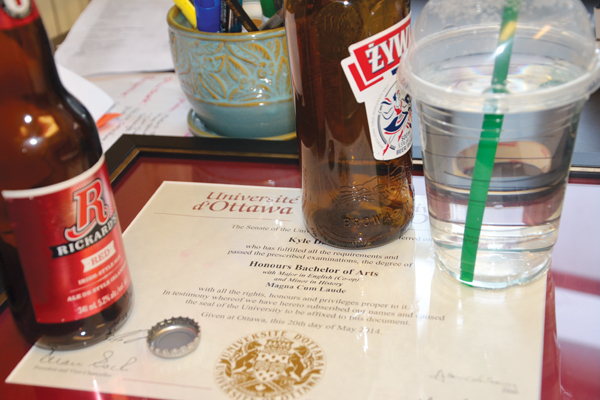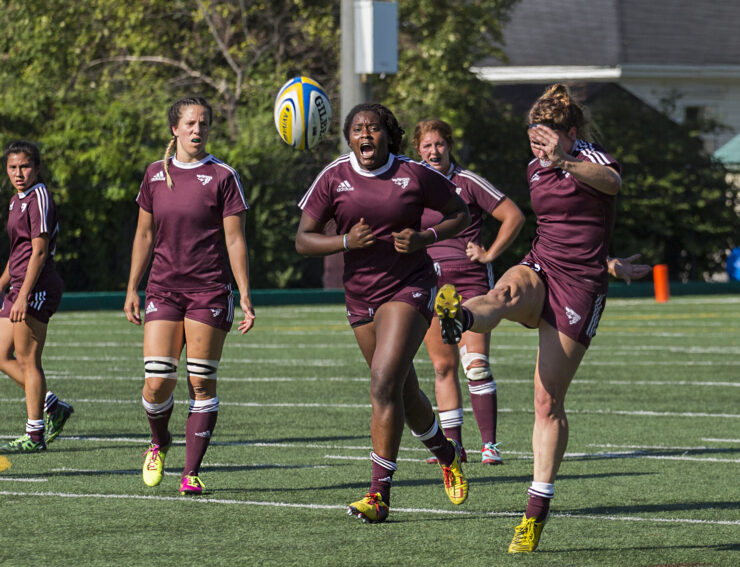Program restructuring only strengthens the myth of the useless art degree
Photo by Brianna Campigotto
Arts programs are under attack at the University of Ottawa.
Near the end of the 2014 winter semester, the Faculty of Arts held meetings regarding the “restructuring” of its programs, where it was revealed that program requirements were to be relaxed and some previously mandatory courses were to be made optional.
Responses to the proposed changes were overwhelmingly negative. Students and professors protested, saying these changes will lessen the value of arts degrees by watering down the requirements. From a broader perspective, it seems like these recent program restructuring plans are part of an ongoing attempt by the university administration to convert our liberal arts institution into a vocational school.
This development ties in the U of O’s recent decision to sign specialization agreements with the Ontario government, in which they plan to focus on developing management and communication, science and engineering,environment, public policy, and health programs. The emphasis on these “practical” programs begets a narrow view of education being workforce training, rather than a means to human enrichment.
Contrary to what many believe, studies have shown that an arts degree is as financially sound as any other degree. For example, in 2013 the Association of American Colleges and Universities published a report that found the vast majority of employers are looking to hire candidates with the capacity to think critically, communicate clearly, and solve complex problems—qualities typically found in a liberal arts education.
Nonetheless, a myth persists that degrees in other faculties like business and engineering are more practical. This myth corrupts the thinking of university administrators, causing them to neglect the arts and instead focus most of their attention on other, more “practical” programs.
What other explanation could there be for Dean of arts Antoni Lewkowicz consenting to the emaciation of his own faculty? At the restructuring meetings, one could have mistaken the dean of arts for the dean of Telfer, given his preoccupation with balance sheets. It is probably true that the myth of practicality has hurt enrolment in the arts, but this only makes the weakening of our arts programs even more absurd.
Instead of pushing arts to the side, the university should invest in this faculty and promote our excellent programs to the multitude of high school students who are unsure of what to study in their post-secondary education and are at this point looking for an education more than they are looking for a job.
What’s truly frustrating about this situation is that despite the vastly negative feedback surrounding these changes, we don’t have a real say in the matter. The university has sent its message loud and clear: it is going to embark on a course that will devalue our arts degrees and degrade the quality of our education, whether we like it or not. This is completely unacceptable.
All students have an interest in ensuring that they receive the best education possible, and it’s our responsibility to speak out against the direction the current administration is taking.





